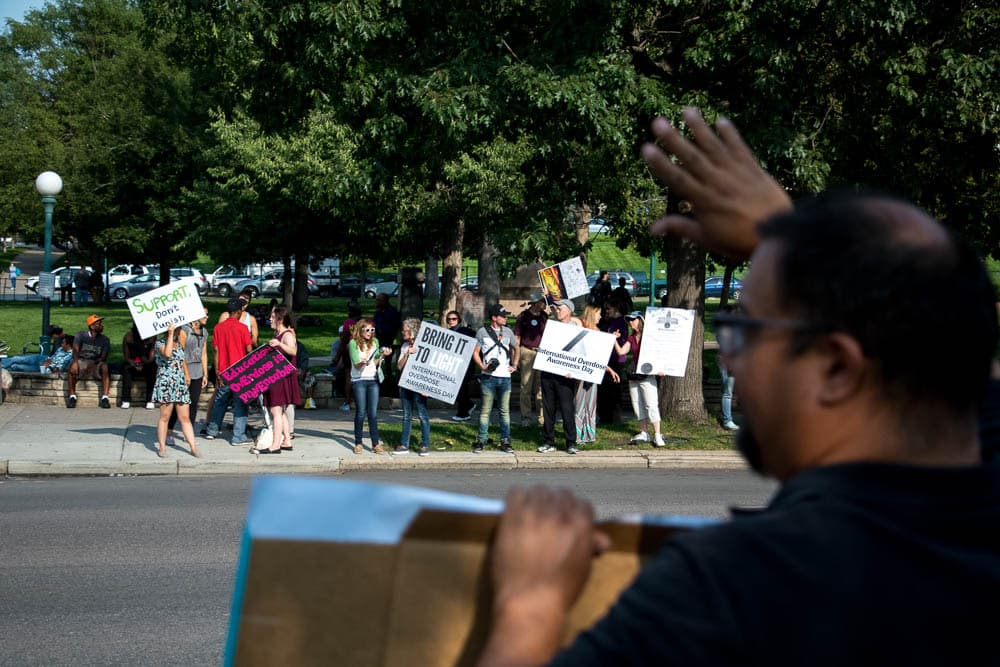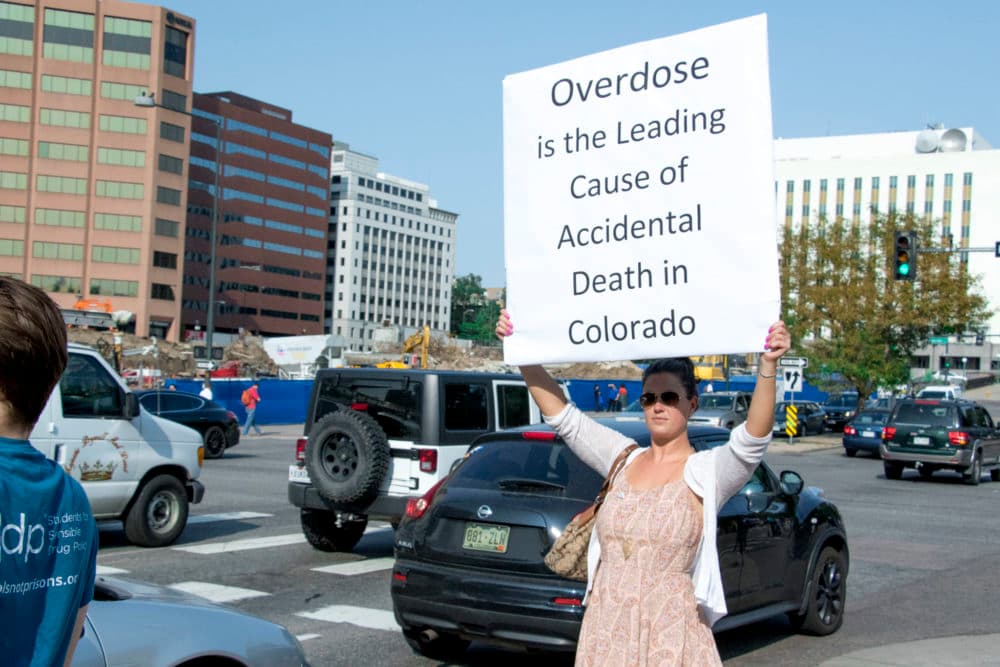
Standing on the corner of Colfax and Broadway in the full-force afternoon sun, Shannon Schou appeared stoic. Around her, a handful of young adults brandished signs and waved at passing cars. Schou's read, “Overdose is the leading cause of accidental death in Colorado.”
Schou’s brother suffered a heroin overdose in 2008. Leading up to the overdose, he’d had no insurance and Schou said her family could not afford the $30,000 it would cost to put him in inpatient care. Now Schou works as a clinical social worker and therapist in Denver. She offers pro bono services to those in need and volunteers with the Harm Reduction Action Center.
Wednesday she walked with about 50 others to demonstrate for International Overdose Awareness Day. They gathered beforehand at the center to share anecdotes of family members and friends they had lost to drug overdoses before marching to the corner of Broadway and Colfax. The group carried colorful signs with messages like “Overdose is preventable,” and “Support, don’t punish.” It was 4 p.m., rush hour. They wanted to ensure their messages were heard.
Opiate overdoses are becoming more common in Colorado and nationwide, especially as potent drugs like fentanyl — an opioid 50 to 100 times stronger than morphine — make their way into the illicit drug trade. In a recent report, the U.S. Drug Enforcement Agency said thousands of counterfeit prescription pills, some containing deadly doses of fentanyl, have flooded the country. The report detailed the dangers of opiates cut with fentanyl and U-47700, an unscheduled opiate that hasn’t been tested for human use. Overdoses from these synthetic opiates increased 79 percent from 2013 to 2014. This year alone, U-47700 has caused 17 overdoses and several deaths nationwide.
Colorado overdose death rates are also on the rise, increasing 68 percent since 2002, according to the Colorado Health Institute. Harm Reduction Action Center Executive Director Lisa Raville said the coroner has reported 91 overdose deaths within the first seven months of 2016. This is the seventh consecutive year a group from the Harm Reduction Action Center has gathered on this busy corner. They don’t plan to stop soon.
“We are coming together in solidarity to pay tribute to those who were lost, but we are angry,” Harm Reduction Action Center Development Director Preston Murray said. “We are mad because people keep dying. We have to put a stop to it.”

Travis Smith, 23, came out to support Harm Reduction Action Center because he has lost a lot of friends to overdose. He believes stigma is to blame for what is being called the “overdose epidemic.”
“We need to take the blame out of the situation so people don’t feel so guilty about it,” he said. “Some people completely hide drug problems—that’s what’s so scary about it.”
Ruth Kanatser, 37, found the Harm Reduction Action Center when she was homeless and using intravenous drugs in the streets of Denver. Now, 13 years later, she acts as the syringe access director, providing safety training and harm reduction education to IV drug users.
“My goal is to make sure every IV drug user hears that their lived experience is a valuable part of the conversation on drug use,” she said. “Alive is hope. If you’re dead, there is no recovery.”
The nature of the gathering may have been somber, but the group was in high spirits. Some danced with signs, some waved and most cheered when a passing car or truck would honk in solidarity.
Multimedia business & healthcare reporter Chloe Aiello can be reached via email at [email protected] or twitter.com/chlobo_ilo.
Subscribe to Denverite’s newsletter here.











